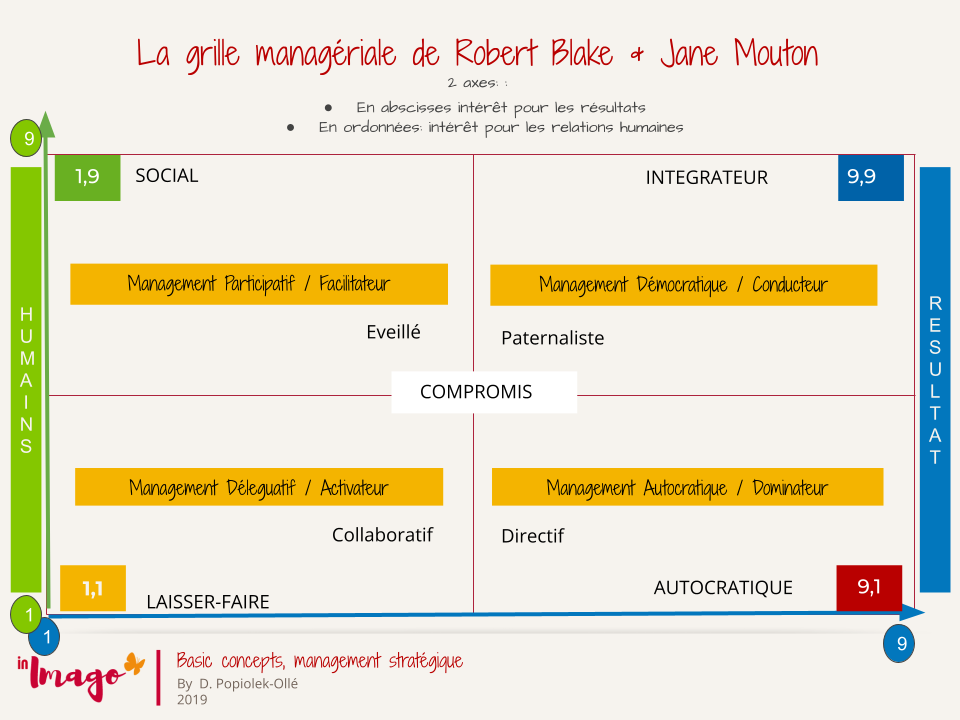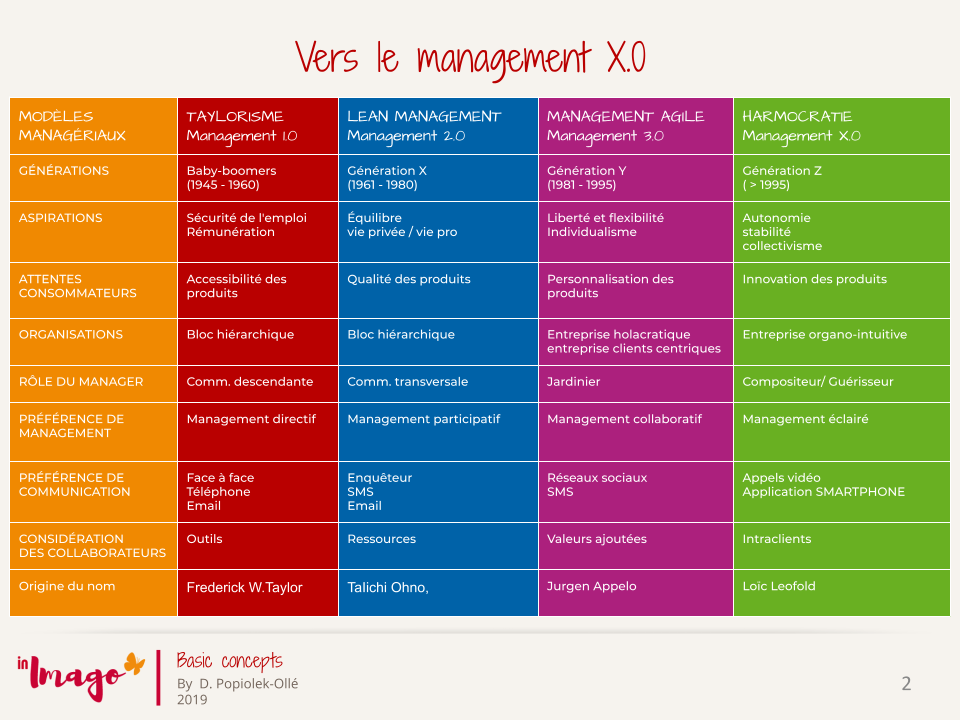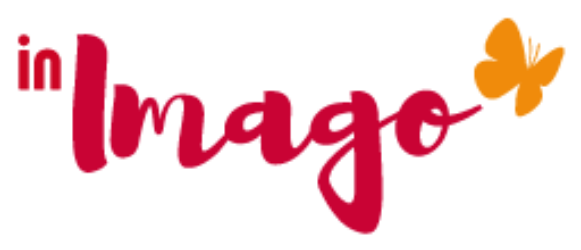Autocratic management is probably named after Robert Blake and Jane Mouton, who in 1955 created a managerial grid to determine the characteristics of successful leaders.
Management styles: what relationship of authority with employees?
In 1955, Robert Blake and Jane Mouton created a managerial grid to determine the characteristics of successful leaders. Their managerial grid sets the authority-employee relationship on a scale of 1 to 9 and presents 5 management styles. Thus, it defines different behavioral leadership models according to 2 criteria: on the one hand concern for profitability and on the other hand, interest in the human factor.
The grid poses 9 points per axis: a value is assigned per axis for each identified management style. The final score highlights 5 predominant management styles according to the manager’s degree of concern for results coupled with his degree of attention to the human factor.

Managerial grid Blake & Mouton
Autocratic management
Autocratic management is associated with Frederick W. Taylor who establishes that the scientific organization of work is based on a horizontal organization where each employee performs basic tasks, and eliminates any unnecessary gesture. It also divides the work between employees (performers) and a management responsible for organizing work and productivity. Which has based its management efforts on the effectiveness of the results produced by the production tools. Men must conform to it, adapt to it!
Also referred to as directive or authoritarian, autocratic management is based on a pyramid model, where the different strata exert direct pressure on the lower categories. This is an illustration of Taylorist theory, where the job of the manager is above all to give instructions, to supervise and control the execution of tasks, and to act as a link between management and employees.
Benefits: high productivity, inexpensive labor, adherence to clear guidelines
Disadvantages: lack of autonomy, creative intelligence, little room for relationships and employee development
Behind this management, are associated the dominant character traits of this type of leadership: authority, the power of rapid and unchallenged decision-making. The orders are given, the others carry out.
This type of management is now questionned for the absolute authority side, imposed on others.
However, it is also often the bearer of strategy, in the strategic sense of the term.
Autocratic management: methods tested by the army
The army is the symbolic representation of a strictly pyramidal hierarchical organization. Between obedience to orders and the need for discipline, the notion of management is clearly that of autocratic management. With the evolution of companies towards more autonomy, is this transposable? The VUCA management in any case is inspired by it and relies on Agile values to offer a framework of autonomy to the teams.
In any case, in the very definition of management, authority is implied:
- The word Management, (from the English verb “to manage”: to manage). It is the result that is highlighted, the success.
- In Latin, Caput, the term Commander, command means the Head in the sense of prescribing, imposing, directing. It is the initiative that is put forward, the course to follow.
And it is this course that we are looking for. This meaning that has disappeared from companies. The flat, opal, holacratic, sociocratic organizations do not claim the role of management but that of leader. Leadership, the one that gives meaning, that mobilizes as some Commanders, Army captains …
Management or command, the nuance is fine. However, is command and control coming to an end?
Towards an evolution of managerial models

Organic Management is an organic approach that we are getting closer to as we understand the mimicry and the universality of forms and organizations, within nature itself. Understanding and imitating these living systems and in particular natural ecosystems is one of the keys to our future.

